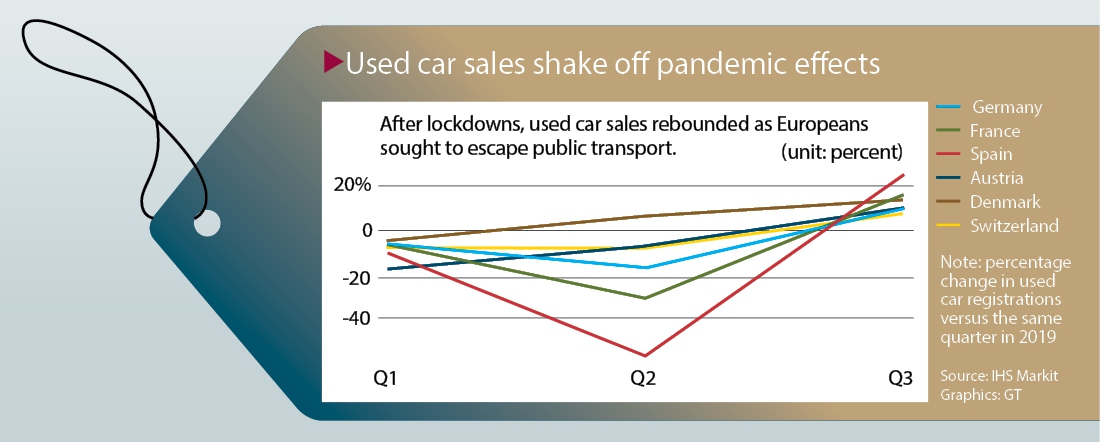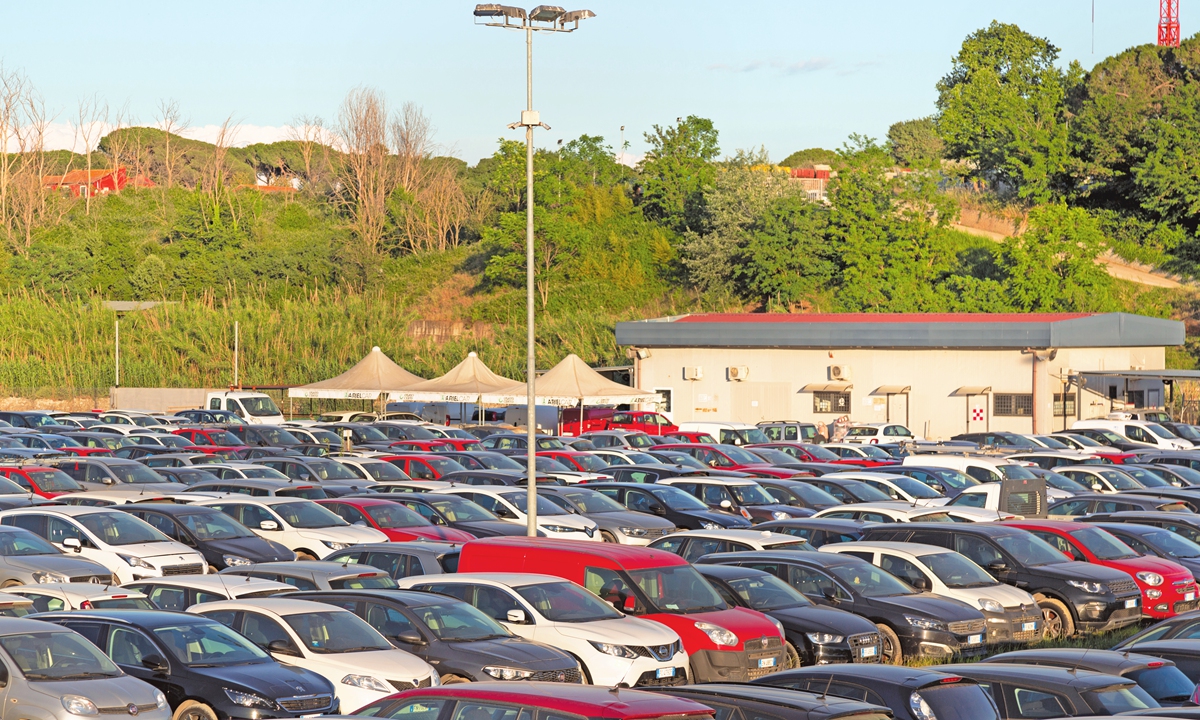Europeans snap up old cars to avoid public transport
Across Europe, people are snapping up old automobiles, desperate to avoid buses and trains but wary of splashing out on a shiny new motor in uncertain economic times.
"Public transportation is terrific here, but with the COVID[-19] and all that, it's better to avoid it," said Robert Perez, who recently moved to Spain's capital Madrid from Argentina.

Perez, a 33-year-old automotive engineer, bought a red 2001 Seat Toledo for 2,000 euros ($2,370) from OcasionPlus, a Spanish used car firm that has opened four new dealerships since the lockdown due to soaring demand.
Data provided to Reuters by research firm IHS Markit and online car market AutoScout24 showed a marked upward shift in registrations of older cars across Europe. That's not good news for struggling mass transit networks or the environment as dirty old cars appear to be more in demand than new electric vehicles. In the longer term, however, the shift away from public transport to "individual mobility" in the pandemic era is expected to help carmakers, hit by a 27 percent slump in new vehicle sales across Europe in the first 10 months of 2020.
At Nawaie Motoring's crammed lot in western London, general manager Ameen Sultani points out the highly demanded older cars selling for under 3,000 pounds ($3,985).
He said prices for the cars, mostly more than a decade old, have jumped by 25 percent as buyers who used to take trains and buses look for affordable alternatives.
"Anything under 3,000 pounds has sold very quickly and is very hard to replace in our inventory because everyone is chasing the same vehicles," Sultani told Reuters.
Second-hand demand
Stronger than expected demand for new cars in the US, Europe and especially China in recent months has helped major automakers relatively recover from the financial blows caused by pandemic lockdowns. But an analysis of car registration data in France, Germany, Italy, Spain, Switzerland and the UK conducted for Reuters by IHS Markit also shows there is a significant shift toward older, used vehicles.
In France, the IHS analysis showed used car registrations rose nearly 16 percent in the third quarter while new vehicle sales fell more than 5 percent. It also showed that in 2020 so far, vehicles more than 15 years old made up a higher proportion of used car registrations than in 2019.
There was an even bigger jump in Spain, with used car registrations up nearly 25 percent, according to the IHS analysis.
Cristian Lopez, 34, is another buyer in Spain who went for the cheaper second-hand option, partly thanks to having saved some money during the country's strict lockdown.
Furloughed from his job at a catering company, he went back to school to study tourism management. In November, he bought a gray 2005 Renault Clio for 3,600 euros to get to classes from his home in the Madrid suburb of Vicalvaro.
Vehicle sales portal Sumauto, part of Spanish media company Vocento SA, told Reuters that sales of cars more than 20 years old jumped 25 percent in Spain from June to October, while those over 15 years old rose 16 percent.

A general view of a used car sale in Rome, Italy Photo: VCG
Trouble in traffic
An AutoScout24 analysis showed that in July through September, online searches for vehicles more than 20 years old jumped 80 percent in France, 77 percent in the Netherlands and 59 percent in Belgium.
But buyers are still shying away from second-hand electric vehicles, according to used car dealer OcasionPlus. Of the 2,800 vehicles it currently has on sale, only six are electric.
"People are wary about batteries' performance in the long run and are reluctant to invest in the charging cabling for a second-hand car," marketing chief Fernando Rodriguez said.
Besides the potential setback to the environment, there are other ramifications from keeping very old cars on the road longer.
Older vehicles with fewer safety features might cause more accidents and lead to higher premiums, insurers said, but that will take time to show up in statistics. And public transport is already affected.
The number of people using public transport in Spain fell 92 percent in April from the same month in 2019 and was still 44 percent lower in September, several months after national lockdown restrictions were eased.
In Britain, before the country's latest lockdown began at the beginning of November, rail usage was about a third of 2019 levels, while personal car usage was close to 90 percent.
In September, London Mayor Sadiq Khan urged a 5.7 billion pound bailout package for the city's transport operator as ridership plunged.
Germany and France have also bailed out their state-owned railways.
Newspaper headline: Pandemic mobility